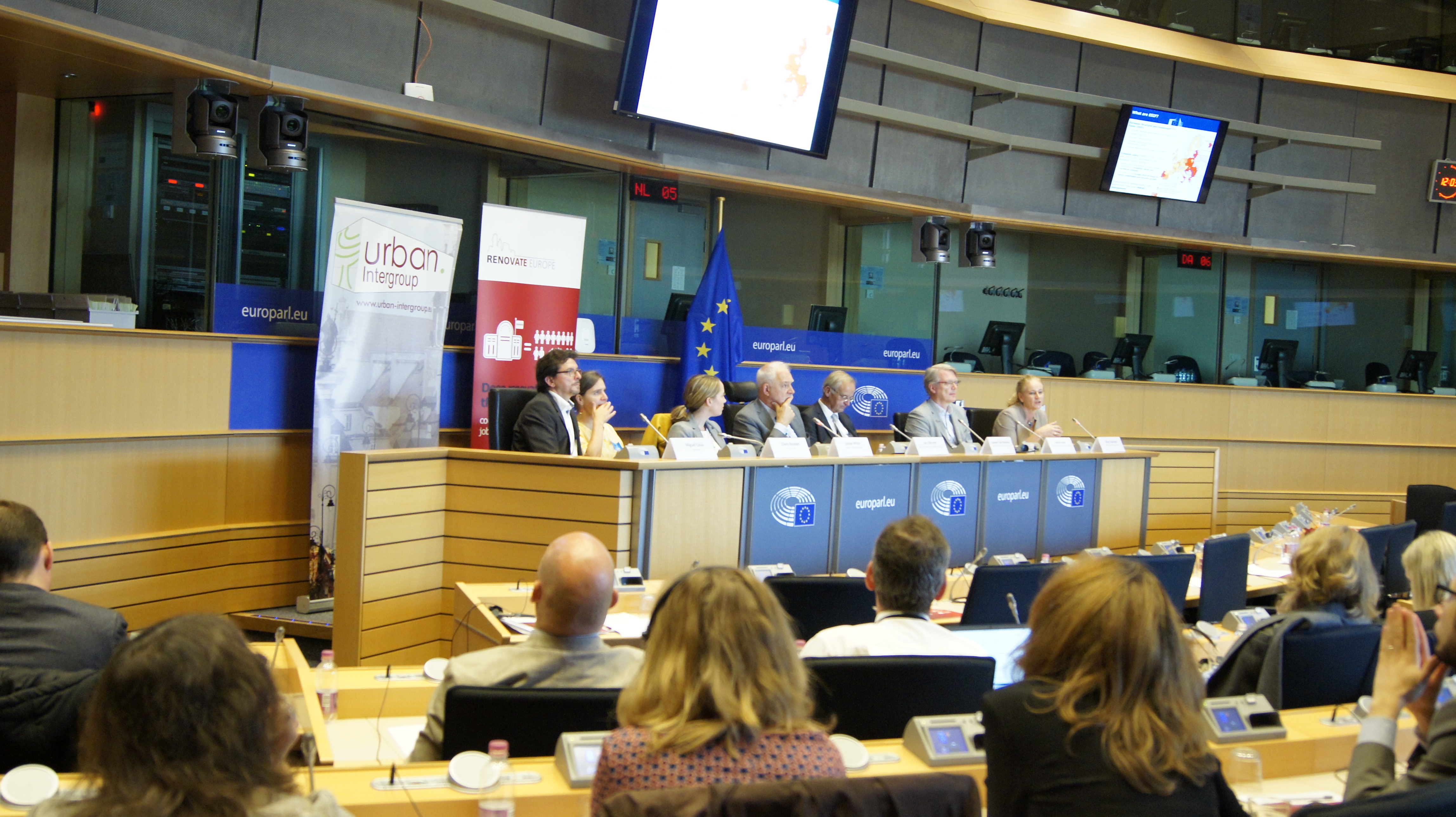Funding for energy renovation as a stimulus for urban regeneration- last event in Brussels
 The URBAN Intergroup and Renovate Europe organized a joint event on the topic Funding for Energy Renovation as a Stimulus for Urban Regeneration on Tuesday 26th September. The event was held in the context of the ongoing negotiations on the review of the Energy Performance of Buildings Directive, due to be voted in the EP early October, and sought to draw a link with available funding and opportunities to help Member States implement buildings-related legislation, through the Juncker Fund, the EIB and the current and possibly the next Multi-Annual Financial Framework, but also raising awareness about successful local initiatives.
The URBAN Intergroup and Renovate Europe organized a joint event on the topic Funding for Energy Renovation as a Stimulus for Urban Regeneration on Tuesday 26th September. The event was held in the context of the ongoing negotiations on the review of the Energy Performance of Buildings Directive, due to be voted in the EP early October, and sought to draw a link with available funding and opportunities to help Member States implement buildings-related legislation, through the Juncker Fund, the EIB and the current and possibly the next Multi-Annual Financial Framework, but also raising awareness about successful local initiatives.
“Energy renovation projects in urban areas is like inviting a whole city to go on an Easter egg hunt, to uncover the hidden treasures and multiple benefits that can be unlocked”, said Claire Roumet, Executive Director of Energy Cities. “Energy renovation can completely change the metabolism of a city – the positive impacts can be so significant that it can lead to a complete urban transformation, at all levels.”
MEP Jan Olbrycht, President of the URBAN Intergroup, acknowledged the key role of energy renovation as an opportunity to roll-out a comprehensive urban strategy with the aim of tackling energy poverty, boosting social cohesion and triggering local jobs. But MEP Olbrycht was also keen to emphasise the need that urban regeneration be an inclusive process which preserves the patrimonial heritage and improves the quality of living for all residents involved.
“Energy renovation can and must serve as entry point to engage the local community to interact on a common discussion that goes wider than just buildings and housing, to improve quality of life for all”, agreed Claire Roumet.
The redistributional value of targeted renovations is well-known, delivering undeniable benefits to lower income groups through lower energy bills and improved living standards. But this urban regeneration also occurs in skyscraper-filled business quartiers needing a much-needed human touch, or high density residential areas thirsty for more green spaces or community facilities.
New URBAN newsltter
We are very pleased to present you the URBAN Intergroup 21st Newsletter in which you will find more information about the breakfast meeting with coordinators of 12 partnerships of the URBAN Agenda.
In this issue you can read as well about other recent meetings and events organised by the URBAN Intergroup.
Enjoy your reading.




